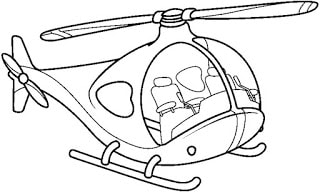Helicopter Parents

It’s time to retire the term “helicopter parents”. Depending on your source, the term was coined by one of two individuals. The psychologist, Haim Ginott, wrote about a child/teen sharing that their parent hovered over them like a helicopter. It then seems that the parenting expert, Jim Fay and Foster Cline wrote about “helicopter parents” in their discussions of parenting with love and logic. It seems the work of Cline and Fay brought popularity to the concept and is how is has spread throughout the school systems as the Love and Logic model is promoted by many schools. The popular interpretation of the term is referencing parents who “hover” and over manage the lives of their children. This can obviously be a concern. It is not productive for a parent to be in the habit of over controlling a child’s decisions or rescuing them from the consequences of their choices.
As I counsel families I have become increasingly concerned that the interpretation of being a helicopter parent is leading to problems. The two biggest problems I see are increased disconnection between parents and kids, and decreased engagement with teachers/schools. I have had parents say they are afraid of being too involved in their kids life, because they don’t want to be a helicopter parent. And though we should keep this in check, our fear of being labeled as a helicopter parent should not excuse our engagement in our kids lives and their decision making. We are our kids best coach, conscience, and connection. Distancing ourselves increases the risk of them floundering around with decisions that they are ill equipped to handle. A greater fear of parents is to be labeled by the community or by teachers as a helicopter parent. Unfortunately I have witnessed school personnel throw this label around flippantly with little consideration of a parents real motives. It is important to give the benefit of the doubt prior evaluating a parent’s decisions. An inquiry email or a request for a meeting are not examples of being helicopter parents. The research is clear that a child’s education is much more effective when parents and schools collaborate together.
1. Mentor before Moving away
Many Native American cultures had a view of child development that involved extensive periods of adult engagement and apprenticeship before granting children independence and freedom. The attitude was one of walking along beside children, teaching, coaching, correcting, and even a little praising as children learned new skills. Unfortunately in our culture we often hand tasks or responsibilities off to kids without really teaching/mentoring our kids in the actual skills necessary for being successful. This may sound way to simple but I honestly hear often that kids (even teens) are not adequately brushing their teeth. And even though this may not apply in all situations, many times parents have not taught simple brushing techniques and supervised the activity until it is clear that the child has the skills. Mentoring does not mean controlling. Mentoring involves being a supportive presence while the child develops or grows their skills. We don’t move away from the mentor role until the child has the skills to function independently.
2. Ally rather than Assume
Teachers and parents please read these next two statements carefully:
Parents – Most (the vast majority) of teachers are talented professionals, who choose to be with students because they want the best for the children in their classrooms. They don’t just teach for a paycheck. They enjoy the rewards of seeing the children they teach grow, succeed, and conquer challenges.
Teachers – Most (the vast majority) of parents of the kids you teach love their children. They love deeply and want the very best for their children. They enjoy seeing their children be successful, grow, and conquer challenges.
Throwing around terms like “helicopter parent” causes us to label rather than solve problems. Our goal should be to collaborate together to solve the problems our children/students face. That might mean some differences in philosophical approaches. Differences can be resolved when both parties bring their ideas to the table and assume the best about the other.
Our biggest concern as a culture should be much more related to the relationship disconnection caused by media and technology. We need to be less concerned about “helicopter parents” and maybe more concerned about “social media” parenting. The adults in a child’s world need to model healthy relationships, so that our kids are prepared for families, work and their future.